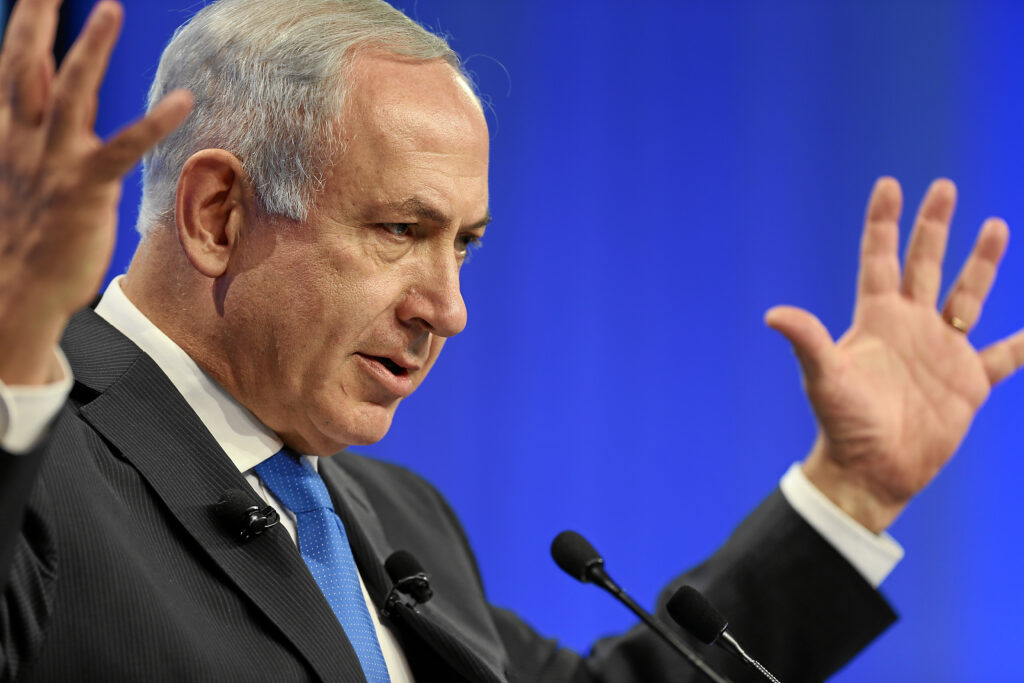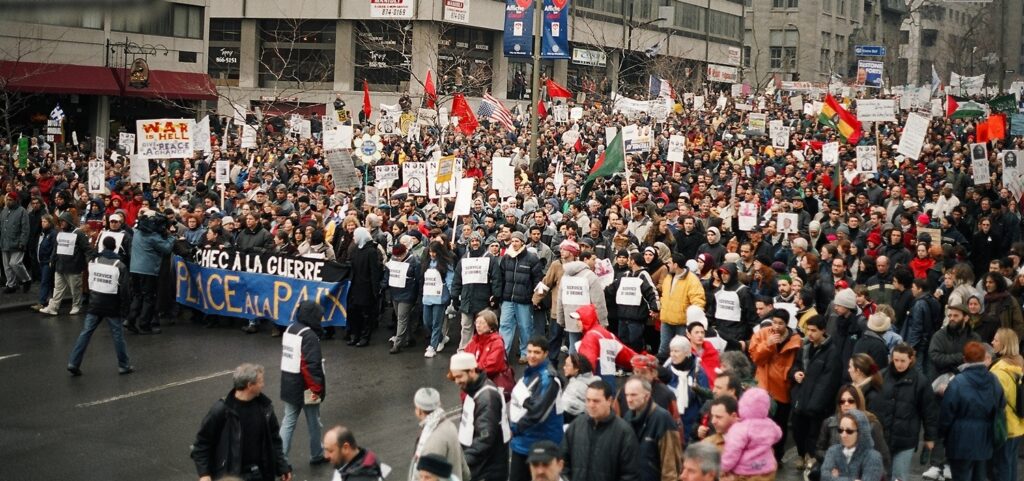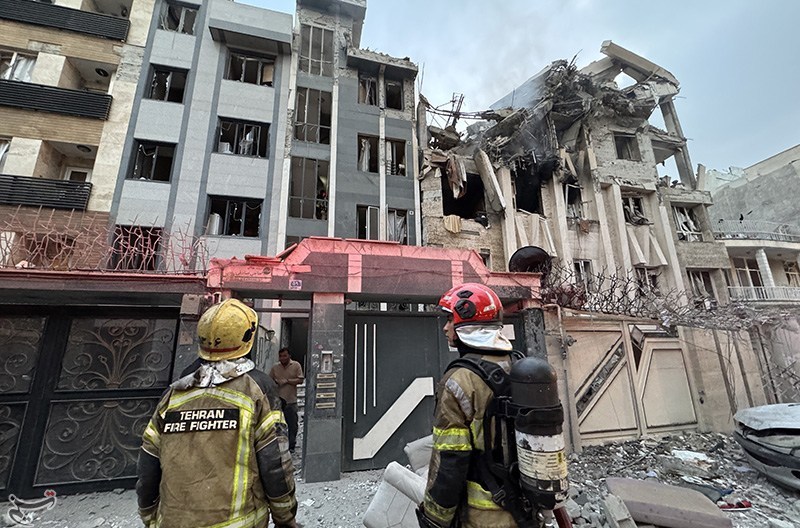Once more, we’re watching a bad movie rerun: the United States is on the brink of war with a Middle Eastern country allegedly in possession of weapons of mass destruction. The country in question is supposedly a danger to stability in the region. Despite the déjà vu from the early 2000s and the war in Iraq, we’re talking about Iran in the year 2025.
Although every major media conglomerate is describing Israel’s attacks on Tehran and Iranian nuclear sites as “preemptive,” nothing could be further from the truth. These attacks are illegal under international law.
The truth about this looming war is that the American government and oligarchy are eager to deliver the final blow to the last resistance against their political and economic domination in the region. And if they keep heading down this path, these disconnected American elites could drag other world powers into a confrontation that would be extremely dangerous for the working class in every country involved.
A Snapshot of the Balance of Power
By the late 1990s, the United States had crowned itself “master of the world.” Its victory over the USSR after half a century of Cold War (which was often far from cold) gave the American ruling class political and economic control over most of the globe. The bipolar world was gone—the one in which each bloc gained influence through diplomacy or massacres. All that was left was Uncle Sam, his allies, and a handful of groups and states still resisting American hegemony.
At the time, Russia and China didn’t yet have an oligarchy strong enough to challenge the U.S. for a slice of global political-economic control, unlike today.
In the Middle East, the American camp relied on its military presence and its allies, Israel and Saudi Arabia. The only serious opposition came from Iran, which spent the last three decades building an “axis of resistance.” This included Iraqi Shia militias, Hezbollah in Lebanon, the Assad regime in Syria, the Houthis in Yemen, and more recently, Hamas.
But since 2020, that axis has crumbled. Hezbollah and Hamas have been severely weakened by Israel’s war of extermination. The Houthis were neutralized by massive strikes in the Red Sea, and Assad was finally overthrown after years of war. Iran now stands alone in the Middle East, facing a heavily armed, confident Israel backed by the West.
It’s in this context that Israeli Prime Minister Netanyahu launched Operation Rising Lion, aimed at assassinating Iran’s senior leadership and destroying its military and nuclear infrastructure. The official justification: Iran is allegedly on the verge of building a nuclear bomb. Close enough, says Tel Aviv, to warrant “preemptive” strikes.

But under international law, preemptive action is only allowed to stop an imminent attack, with clear evidence. There’s no indication that Tehran was planning any such strike, and Israel hasn’t provided a shred of proof.
Since then, the escalation hasn’t stopped. Both countries are exchanging missiles daily and throwing threats around on television and social media. A direct war between Israel and Iran seems increasingly inevitable, with the U.S. in the driver’s seat.
First as Tragedy, Then as Farce
As we’ve already said, the bad movie of the Iraq war is playing again, and the media refuse to notice the similarities. In 2003, Washington justified the invasion of Iraq with some of the deadliest lies of the 21st century: “weapons of mass destruction,” ties to al-Qaeda… A narrative fabricated by U.S. intelligence, shamelessly repeated by the White House and mainstream media.
The result: some of the worst war crimes committed since World War II, driven by the goal of securing control over Iraq’s oil. That invasion caused between 268,000 and 295,000 direct deaths, according to the Cost of War Project. Other studies estimate up to a million victims when counting indirect effects (infrastructure collapse, public health, epidemics…)
Today, the script is being recycled. Netanyahu is yelling that Iran (a country with major natural resources) must be stopped “before it’s too late.”
Sure, a new nuclear power is always concerning, regardless of the flag. But Israel has been crying wolf since 1992. They’ve repeatedly claimed that Iran was just about to finish building a bomb (in 1995, 2001, 2002, 2012, 2021…) Who could forget “Bibi” at the UN, holding up a cartoon bomb to claim Iran was 90% of the way there? Thirteen years later, still nothing. Iranians must be very meticulous.
And even if the threat were real, it’s hard to take the accusers seriously. Israel is an undeclared nuclear power that refuses to sign the Non-Proliferation Treaty, yet demands that Iran, which has signed the treaty, submit to international inspections. Worse still, Israel leans on the United States (the only country to have used nuclear weapons) to neutralize Tehran. It’s completely upside down.
Back in 2015, Iran had signed a deal with the permanent members of the UN Security Council and Germany. It limited Iran’s nuclear program in exchange for reinforced inspections and relief from the economic sanctions imposed since 2006. The IAEA confirmed Iran’s compliance every year… until Trump torpedoed the agreement in 2018 and reinstated sanctions, to the dismay of European leaders.
Two years later, Trump personally authorized the assassination of Qasem Soleimani, a key figure in the “axis of resistance,” who was killed in Baghdad while meeting with the Iraqi Prime Minister. And now he claims he wants to renegotiate? No wonder Iran doesn’t trust them.
Yes, every new nuclear weapon poses a threat to working people and civilians, because that’s who those bombs are specifically made to kill them. But tragically, they’ve become indispensable for any regime trying to stand up to one of the world’s nuclear-armed powers and their menacing arsenals.
Make no mistake: the Iranian regime is brutal to the poor and to women, crushing dissent at home. But that doesn’t justify superpowers sacrificing entire populations to protect their political and economic interests. The future of Iran should belong to the Iranian people, not to the president of a foreign country.
As tensions rise, so does the risk of global ignition. As we’ve said, China and Russia are now competing with the U.S. for markets and influence. Every step toward escalation in Ukraine, in Palestine, and now in Iran, pushes us closer to a direct confrontation between these major powers. We cannot be dragged back into a global slaughter of workers while the oligarchs play Risk on giant screens from their cozy bunkers.
And Canada in All This?
Back in 2003, Prime Minister Jean Chrétien refused to drag Canada into war without prior authorization from the United Nations Security Council. One might think Canada rejected the Iraq war on legal grounds, but in reality, that didn’t stop our government from joining other conflicts (like in Kosovo or Afghanistan).
What made the difference then was that the Iraq war was wildly unpopular with Canadians. A strong anti-war movement made its voice heard. Polls at the time showed that 90% of Canadians opposed the invasion. That public pressure culminated in a massive protest of 200,000 people in Montreal on March 15, 2003, just before the war began.

That movement was part of the broader alter-globalization wave that resisted the rise of neoliberalism. It was large and organized, and it allowed a rapid mobilization. But while the justifications for war feel eerily familiar, today’s anti-war forces are weaker, more scattered, and public opinion, more divided.
The closest thing we’ve seen recently is the movement for Palestinian liberation. While parts of it sometimes fall into the culture war trap, the movement has successfully exposed the atrocities being committed in Gaza. Thanks to their work, recent polls show that about half of Canadians now agree that what Israel is doing constitutes genocide.
It is also important to point to all the new efforts aimed at rebuilding the organizational strength and combativeness of the working class. They might seem unrelated, but we should remember how crucial strong, lasting, and militant structures like this can be in these kinds of moments.
Beyond the soldiers deployed to the front, an entire manufacturing and logistics network must be mobilized to make war possible. If Canada’s working class refuses to take part, as it did in 2003, and refuses to help power the war machine, the military will not be able to feed, arm, or equip itself on the battlefield.
And that would be a powerful act of resistance to yet another senseless war.


Be part of the conversation!
Only subscribers can comment. Subscribe to The North Star to join the conversation under our articles with our journalists and fellow community members. If you’re already subscribed, log in.